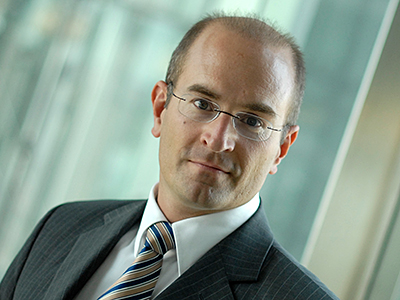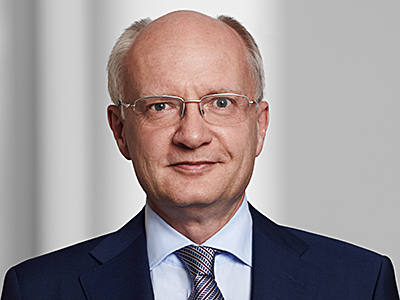Insulet successful against Medtrum in insulin pump battle in Düsseldorf
In the latest round of its dispute with rival Medtrum, the Higher Regional Court Düsseldorf has found in favour of medical device company Insulet over a patent for insulin pumps. The two companies have been battling over their various products for the past three years, which are of increasing importance to the multi-million dollar market.
21 July 2023 by Amy Sandys
A wide-ranging battle between medical device manufacturer Insulet, and diabetes tool management company Medtrum, has entered its next phase. Earlier this month, the Higher Regional Court Düsseldorf declared that Medtrum’s latest model, the Medtrum A7+, infringes Insulet patent EP 2 438 957 B1 (I-2 U 79/22).
The court ordered the Chinese company’s German subsidiaries, Medtrum GmbH and Medtrum B.V., to cease and desist, render accounts, recall and destroy all infringing products, and to pay damages for past infringement.
Insulin on the market
In February 2023, the Federal Patent Court upheld EP 957 to a limited extent, allowing the second-instance Düsseldorf court to resume the stayed infringement proceedings. The asserted claim relates to a “sensor for linear detection of a lead screw, wherein a rotation of the lead screw is prevented”. The mechanism results in an improved control of the insulin pump, which means patient safety is improved.
Insulet is a US-based medical device manufacturer which primarily produces Insulin pumps. Both companies produce devices which automatically dispense insulin into a patient with diabetes without the need for regular injections. As the population grows, and with more people being diagnosed with diabetes, the devices are increasingly sought after in the market.
Nullity proceedings are also running at the Federal Court of Justice in Munich, concerning both EP 957 and another patent, EP 1 874 390. So far, the Federal Patent Court has upheld both patents in limited form, following amendments.
Insulet follows up win
The latest decision follows another win for Insulet in the ongoing proceedings against Medtrum, albeit from three years ago. In 2020, the Regional Court Düsseldorf found that Medtrum infringed EP 390, which covers a fluid delivery device (4c O 20/19). According to the patent description, a fluid delivery device “may include a mechanism for driving fluid out of a reservoir and an actuating mechanism for actuating the driving mechanism”.
Thus, the patent pertains to how the insulin is administered to the patient. The case was directed against Medtrum’s first-generation insulin pump product, Medtrum A6. The judgment is final, with Medtrum GmbH declining to file an appeal. The company no longer sells the Medtrum A6 product in Germany.
Managing the condition
Medtrum has not stumbled at every hurdle, however. In further proceedings in 2020, the Regional Court Düsseldorf found that Medtrum did not infringe Insulet’s EP 1 335 764 B1, which covers a “device for delivering a fluid to a patient”. This includes an exit port, a dispenser, a local processor, and a wireless receiver connected to the local processor for receiving flow instructions.
Insulet has also sued Medtrum’s Chinese parent company, Insulet Technologies, in Düsseldorf based on EP 957 and EP 390. After Insulet obtained a default judgment, Medtrum responded by filing a remedy over the default judgment for reinstatement of the case. This remains pending.
While Insulet is a medical devices manufacturer, Medtrum is involved in the management of diabetes. For example, the Chinese company produces medical devices used to manage diabetes and creates tools to support healthcare professionals. It is also engaged in research regarding the development of an artificial pancreas, the organ which produces insulin.
EP 390 up again
Previously, Insulet had obtained a preliminary injunction against Berlin Chemie, a subsidiary of Italian medical devices manufacturer Menarini Diagnostics, in the first-instance Düsseldorf court (case ID: 4c O10/23). The court had ruled that Berlin Chemie’s products infringe EP 390.
Berlin Chemie also markets various modern applications for people with diabetes under the GlucoMen brand, which Korean company EOFLOW manufacturers for the corporation. The Düsseldorf Regional Court has now prohibited the company from further sales of its GlucoMen Day Pump in Germany, with Insulet enforcing the ruling. In November 2021, the German Federal Patent Court upheld the patent (case ID: 1 Ni 19/19 (EP)). An appeal is currently pending before the Federal Court of Justice.
Justin Hill, who was a partner in Olswang’s London office at the time, filed EP 390. Hill then moved to become a partner at the London office of Dentons.
The concentration principle
Aside from the market importance of the two insulin-pump products, in handing down its latest decision, the Higher Regional Court Düsseldorf under presiding judge Thomas Kühnen raised two important legal issues.

Marc Grunwald
Firstly, Kühnen examined the so-called “concentration principle” (in German: Konzentrationsmaxime). Here, the court had to decide whether Insulet’s second complaint based on EP 957 was inadmissible, since Insulet could have asserted the patent in the first lawsuit regarding EP 390.
The court examined this question due to the design of the second generation of insulin pumps offered by Medtrum, which Insulet argued infringed EP 957. Although the company created a modified drive mechanism for its second product iteration, the pumps retained a similar design to the products at issue in the first proceedings.
Thus, the court examined the issue of culpability. It asked when the second generation of the infringing embodiment was available on the German market, and if an earlier assertion of EP 957 against the Medtrum A6 product would have enabled an earlier decision that could have covered the second product generation. Ultimately, however, the court found that Insulet had beholden to its obligations, finding in favour of the US company. So far, there is no case law in Germany on this particular issue.
Examining the claims

Frank Peterreins
The second point of law pertained to claim interpretation regarding the sensor’s detection of the lead screw, which is what enables the insertion of insulin into the patient’s body.
However, the court interpreted the claim language in a functional manner and decided that Medtrum infringes the feature. This is despite the sensor in the infringing system not detecting the lead screw’s movement directly, but instead via a different element.
From Munich to Düsseldorf
Munich-based IP-firm Peterreins Schley has advised Insulet since 2019 – not only in patent litigation, but also extensively in patent prosecution at the European Patent Office. Peterreins Schley partner Marc Grunwald joined the firm a year ago from Bird & Bird in Munich, where he had worked since 2011, becoming a partner in 2021. He began work on this specific case in September 2022.
Marc Grunwald brought litigation experience in mobile communications and medical devices to Peterreins Schley. At Bird & Bird he previously worked for medical device manufacturer Edwards Lifesciences.

Wolfgang Kellenter
The patent team of full-service firm Hengeler Mueller represented Medtrum in proceedings, although a different firm was present for proceedings concerning EP 764. Sole patent partner Wolfgang Kellenter led the case in litigation proceedings. Patent attorney firm Feder Walter Ebert assisted in the invalidity proceedings.
For Insulet
Peterreins Schley (Munich): Marc Grunwald, Frank Peterreins (both partners); associate: Constanze Wedding
In-house (Massachusetts): Tom Anderson (Intellectual Property Counsel)
For Medtrum
Hengeler Mueller (Düsseldorf): Wolfgang Kellenter (partner); associate: Kira Fritsche
Feder Walter Ebert (Düsseldorf): Philipp Walter (partner); associate: Alexander Reede (both patent attorneys)
Higher Regional Court Düsseldorf
Thomas Kühnen (presiding judge)